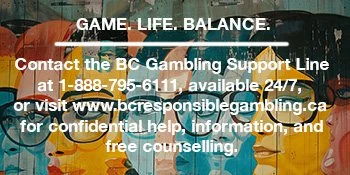Navigating Tipping Culture in Vancouver: Balancing Generosity, Financial Wellness, and 2SLGBTQ+ Community Support
Tipping in Vancouver, BC, has become a multifaceted topic, where cultural expectations, financial pressures, and regional norms intersect. In recent years, many establishments across the city have adopted the practice of automatically suggesting tip percentages at the point of sale—often ranging from 18% to 30% or more. This shift has prompted discussions about fairness, transparency, and the evolving nature of gratuities. For members of the 2SLGBTQ+ community in Vancouver, who may face unique financial and social challenges, the pressure to tip generously can feel particularly complex.
The Evolution of Tipping and Suggested Percentages in Vancouver
In Vancouver, tipping has traditionally been associated with dining in restaurants, where gratuities of 15% to 20% were the norm for good service. However, with the proliferation of digital payment systems, many businesses—from coffee shops to food trucks and even some retail stores—now present customers with pre-set tipping options. These options, often displayed prominently on screens, can include suggestions as high as 25% or 30%, even for counter service.
While this practice aims to ensure fair compensation for service workers in a city with a high cost of living, it can also create a sense of obligation rather than generosity. For some patrons, the suggested percentages feel excessive, particularly in contexts where tipping was not traditionally expected. This shift is further complicated in spaces that cater to 2SLGBTQ+ clientele or employ 2SLGBTQ+ workers, where tipping dynamics are influenced by community solidarity and mutual support.
2SLGBTQ+ Financial Realities and the Pressure to Tip
Studies have shown that 2SLGBTQ+ individuals in Canada, including those in Vancouver, are more likely to face economic challenges such as wage gaps, employment discrimination, and higher rates of poverty. For transgender individuals, the financial disparities are often even more pronounced. At the same time, the 2SLGBTQ+ community in Vancouver—known for its vibrant queer spaces like Davie Village—often feels a strong sense of solidarity. This can create a unique tension: the desire to support queer-owned or queer-friendly businesses versus the financial strain of consistently tipping at higher-than-average rates.
In 2SLGBTQ+ spaces such as drag shows, queer bars, or community cafés, tipping is often seen as a way to directly support fellow community members. Drag performers, for example, rely heavily on tips to supplement their income, as their booking fees rarely account for the time and effort involved in their performances. Yet, for patrons who are also navigating tight budgets, the expectation to tip generously can feel overwhelming—particularly when it’s framed as a moral obligation rather than a personal choice.
Navigating the Social Pressure to Tip
The pressure to tip generously is often heightened by social dynamics. In many 2SLGBTQ+ spaces in Vancouver, there’s an unspoken expectation that tipping is not only a way to show appreciation but also an affirmation of shared values and community support. Declining to tip or selecting a lower percentage can feel like a betrayal of these principles, even if a patron’s financial situation doesn’t allow for higher tips.
Digital payment systems amplify this pressure. When tipping options are displayed on a screen in front of other patrons or the worker, it’s easy to feel scrutinized. The fear of judgement—whether real or perceived—can lead people to tip more than they can comfortably afford. This is particularly relevant in Vancouver, where the cost of living is among the highest in Canada, leaving many residents with limited disposable income.
Balancing Generosity and Financial Wellness
So, how can 2SLGBTQ+ individuals and allies in Vancouver navigate tipping in a way that supports workers without jeopardizing their own financial stability? Here are a few tips:
Set a Tipping Budget: Decide in advance how much you can realistically afford to tip each month. This can help you avoid overspending while still contributing to the workers and establishments you value.
Tip Strategically: Focus your tipping efforts where they have the greatest impact. For example, prioritise tipping service workers who rely heavily on gratuities for their income, such as bartenders, servers, or drag performers. If you’re in a queer-owned or queer-friendly space, consider adjusting your tipping to reflect your values and priorities.
Use Cash Tips When Possible: In many cases, cash tips go directly to the worker, whereas digital tips might be subject to processing fees or pooled systems. Carrying small bills can make it easier to tip intentionally without feeling pressured by automated percentages.
Communicate Your Boundaries: If tipping at the suggested rate isn’t financially feasible, it’s okay to be transparent about your limits. Many service workers, particularly in 2SLGBTQ+ spaces, understand the financial challenges faced by members of the community.
Advocate for Fair Wages: One of the underlying issues with tipping culture is that it shifts the responsibility for fair pay from employers to customers. Supporting initiatives that advocate for living wages and better labour protections in British Columbia can help reduce reliance on tipping in the long term.
Building a Culture of Mutual Support
At its core, tipping is about expressing gratitude and recognising the labour of others. In Vancouver’s 2SLGBTQ+ spaces, tipping can also serve as an act of solidarity, reinforcing the bonds that hold the community together. However, it’s important to remember that generosity doesn’t have to come at the expense of personal financial wellness. By being mindful of your own limits and strategic about how and when you tip, you can contribute meaningfully while maintaining balance.
For establishments, transparency is key. Clear communication about how tips are distributed—and ensuring that workers receive the full benefit—can go a long way in building trust and encouraging fair tipping practices. Similarly, offering a range of tipping options, including lower percentages, allows patrons to contribute in a way that feels manageable and respectful.
Ultimately, tipping in Vancouver’s 2SLGBTQ+ spaces is about more than just money; it’s a reflection of shared values, mutual respect, and a commitment to uplifting one another. By approaching it with intention and compassion, both patrons and workers can foster an environment of support and understanding, ensuring that everyone benefits—financially, emotionally, and communally.









